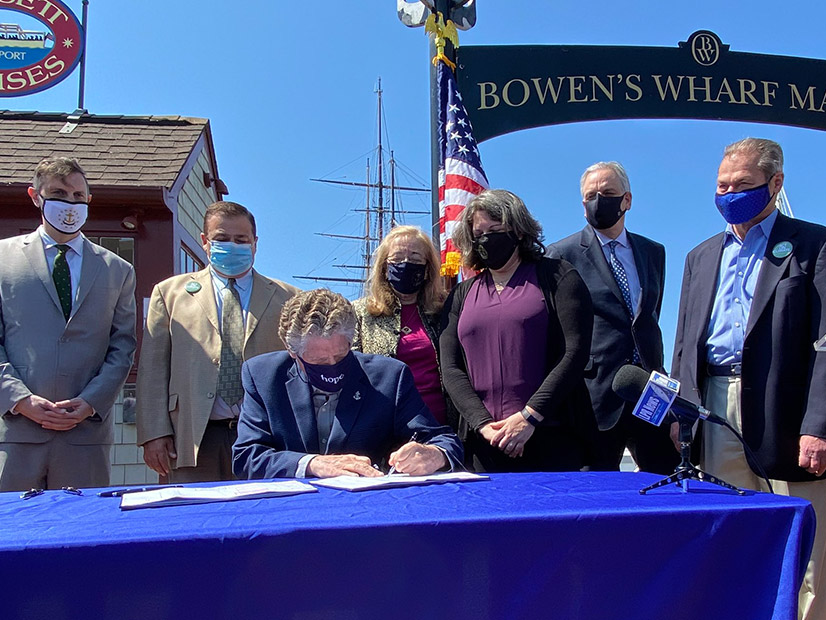Rhode Island Gov. Dan McKee on Saturday signed the 2021 Act on Climate into law in Newport.
The act sets a legally binding 2050 net-zero emissions target for the state and updates previous emission-reduction targets to 45% below 1990 levels by 2030 and 80% by 2040.
“With 400 miles of coastline, urban and rural coastal communities, fishing and agricultural industries, the Ocean State is on the frontlines of this climate crisis,” McKee said at the signing ceremony. “This legislation represents a commitment that not only addresses a moral imperative, but also presents an opportunity to enhance our economy, public health, environmental equity and natural environment.”
Under the new law, the state’s Executive Climate Change Coordinating Council must create a plan to reduce emissions and coordinate them through state agencies. The plan will be updated every five years and will address environmental justice issues, public health inequity and a fair transition for workers.
Legislators sent the bill to McKee at the end of March, but the governor replied with a letter to Rep. David Bennett, chairman of the House Environment and Natural Resources Committee, expressing “serious concern” over the bill’s enforcement provision. He said the language, which authorizes residents or entities to sue the state if it is not fulfilling any part of its duties as laid out in the act, is “unduly broad” and would promote protracted and expensive litigation. His concerns echoed those of legislators on both sides of the aisle.
Any action to enforce the climate law, McKee said, should be limited to the attorney general.
In an April 6 letter to the governor, however, Attorney General Peter Neronha urged passage of the bill without amending it. He said that the enforcement provision is common and there are “both practical and procedural safeguards that prevent specious litigations from advancing in the court.”
The Senate and House of Representatives passed the bill a second time on April 7 and sent it back to McKee.




